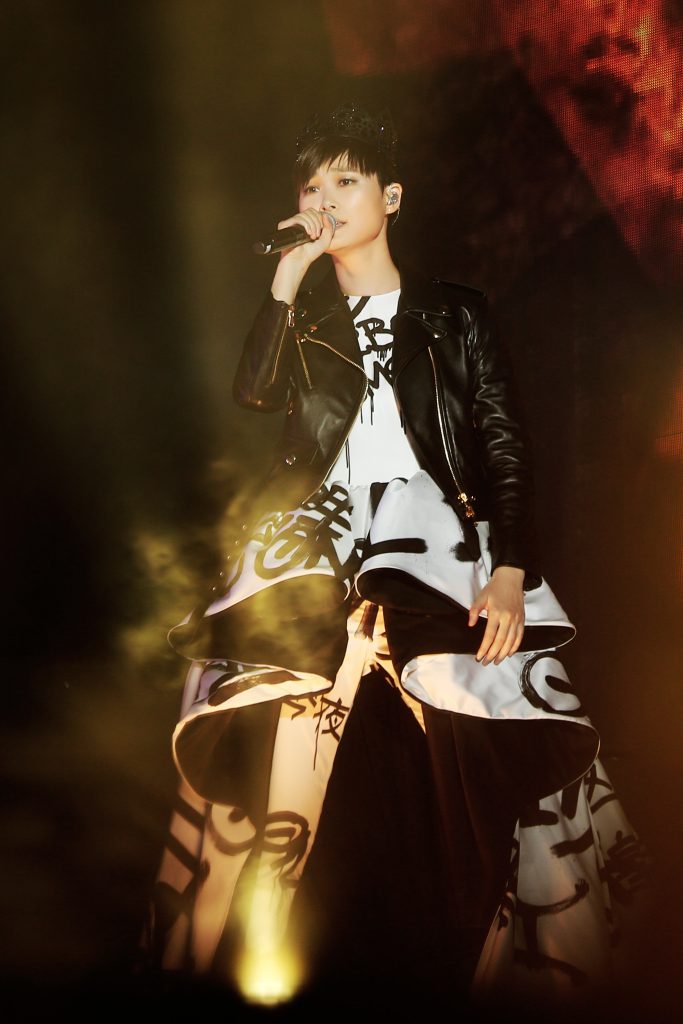Music criticism is rife with the creation of ultra-obscure micro-genres. These may or may not exist in the minds of actual artists. This is true in a variety of genres including hip-hop and metal. However, it’s most prevalent in electronic music. There, trends seem to pop up and disappear almost daily. What’s now known as “hyper-pop” or “bubblegum bass” is sometimes condescendingly called PC Music. Despite this, the genre seems to have staying power.
In essence, PC Music is a UK-based music label and artistic collective founded by electronic music producer A. G. Cook. The group’s first releases went live on Soundcloud in 2013. They garnered histrionic, reactionary, and widespread coverage in the ensuing years. Subsequently, the sound influenced mainstream creators, underground artists, and bedroom producers.

This influence grew despite polarized reactions to the music. In other words, the term “PC Music” became a stand-in for a specific sound that lacked a better name. Many refer to anything inspired by the ethos as an example of PC Music as a genre.
A Brief History and Critical Reception
A. G. Cook, the patron saint of PC Music, studied at South East London’s Goldsmiths before founding his label. It started as a Soundcloud page pumping out tracks at “the rapid-fire of a pop factory” according to Dazed. They eschewed physical releases.
By the end of the following year, the public hailed it as the premier tastemaking group. Garnering over 100,000 listens within 365 days of his first release, Cook was making a real impact. By 2015, when the label released its first official compilation, Cook was named one of Dazed’s most influential people in music.
From the start, critical reaction to the music was divisive. Was it an elaborate post-modern joke? Did the group have earnest aspirations? The music mixed experimental noise with the tinkling tropes of bubblegum pop. With this in mind, it was difficult to evaluate its aesthetic merits without bias.
"PC Music garnered histrionic, reactionary, and widespread coverage in the
ensuing years."
The Mainstream Arrives to the Party
At the same time, PC Music-affiliate SOPHIE’s track “LEMONADE” became a viral sensation. The track fascinated electronic music die-hards and indie fans alike. SOPHIE’s combination of metallic noises, balloon squeaks, high-pitched synths, and trap beats attracted pop attention.
Soon, she would go on to produce for Kim Petras and Madonna. Additionally, Cook himself flirted with mainstream attention on collaborations with Charli XCX. He eventually became her creative director.
Still, even before the idiosyncratic palette seeped into pop, a backlash began. Fader critic Steph Kretowicz accused the entire label of “feminine appropriation”.
Specifically, Kretowicz noted how the label traded in cliches of youthful girlishness. Disproportionately, male artists and critics celebrated these tropes. In addition, neither group credited the genre’s female vocalists. (In 2017, SOPHIE came out as a transgender woman.)

"Even before PC Music’s idiosyncratic sonic palette seeped into radio-friendly pop, a backlash began."

The Next Generation Emerges
Nonetheless, PC Music gave rise to a slew of like-minded artists not on the label. V@leric, Ayesha Erotica, umru, Arca, Ravenna Golden, Alice Gas, Dorian Electra, Gupi, and Cobrah are a handful of examples. 100 gecs, an American duo, garnered viral popularity in 2019 and 2020. They did so by adding elements of pop-punk and nu-metal to PC Music.
Nowadays, Twitter-personality-turned-DJ goth jafar mixes Jersey club beats and trap music into hyper-pop and rave-focused sets. Similarly, rap artists like Rico Nasty and pop singers like Charli XCX use the nu-rave noises of PC Music. The PC Music subreddit spread the gospel of the label’s sound. The group shares remixes of the genre’s artists and others influenced by the original group.
In the new decade, the fandom steered away from frat boys and Coachella girls who embraced “LEMONADE.” Now, it’s largely a queer underground scene. Pre-pandemic, DIY Brooklyn drag shows featured PC Music.
The Sound of PC Music
PC Music’s biggest influences come from pop, rave, and trance. The genre rarely uses acoustic instrumentation. To the layperson, the sound might be indistinguishable from mid-’90s hardcore electronica. However, while rave and trance were hypnotic and aggressive, PC Music features softer tones. These are frequently reminiscent of ’80s radio pop or chiptune.
That sonic similarity drew comparisons to the kawaii culture of Japanese pop. Chiefly, the juxtaposition of industrial sounds with shimmering synths creates a landscape of contradictions. Vocals are usually feminine or manipulated to that end. These voices are vocoded, autotuned, or otherwise altered to sound robotic and inhuman. Furthermore, human coughs, belches, gasps, sighs, and sneezes make unexpected appearances as percussion.
Whereas pop, trance, and rave can be repetitive, PC Music does not employ predictable structure. The style features abrupt tempo changes and irregular or experimental drum patterns. Bass is often distorted in ways reminiscent of harsh noise. PC Music, despite initially sounding maniacally happy, sometimes devolves into discordant chaos. This hints at something insidious beneath the glitz.

"The juxtaposition of industrial sounds with shimmering synths creates a landscape of contradictions."

Charli XCX’s song “Visions” (produced by A.G. Cook and BJ Burton) is a perfect example. Buoyed by Charli’s autotuned, nostalgic vocals, the song begins like generic festival pop. Eventually, during the final minutes, it becomes a cacophonous, Lynchian hellscape.
Perhaps, this duality defines PC Music. With this in mind, the genre’s sounds are simultaneously cutesy and dystopia.
Themes, Motifs, Aesthetic, and Message
The visual aesthetic of PC Music oscillates between minimalism and maximalism. Generally speaking, it mimics contemporary meme-ified expressions or takes on a normcore minimalism. Sometimes, it does both. For example, the acid-laced imagery of PC Music incorporates anime and the late-’90s rave movement.
Moreover, PC Music has an ambiguous relationship with consumerism. It expresses this in ways that mirror the celebration and critique of capitalism in electroclash. However, PC Music does so with a fixation on ’90/’00s culture instead of ’80s nostalgia. Notably, lyrics in PC Music are often vapid. They evoke the pop music the genre studies and parodies. Often, songs refer to makeup, plastic surgery, shopping, sex, and fashion.
This conflict with commercialism corresponds to the genre’s deconstruction of gender. In post-internet culture, anyone can create an alter-ego, free from normative gender. In the same way, PC Music is an example of post-human philosophy — reflected in its cyborg vocals.
Indeed, advancements in medical, prosthetic, cybernetic, and cosmetological technologies freed us from assigned gender. At the same time, they invoked oppression and violence towards sexual minorities.
Human, Machine: Beyond Definitons
On this fine line, PC Music walks. In short, the anonymity of the digital era supports these artists in obscuring themselves. SOPHIE’s first live performances didn’t even feature her on stage. Are these artists actual people or post-identity personas?
Songs begin as one thing and end up as something else entirely. What cultural theorist Frederic Jameson describes as postmodern schizophrenia also applies here. The genre celebrates synthetic worlds, simulations, and layers of genre sampling. It does so without coherence or meaning. Ultimately, there is no difference between humans and machines.








